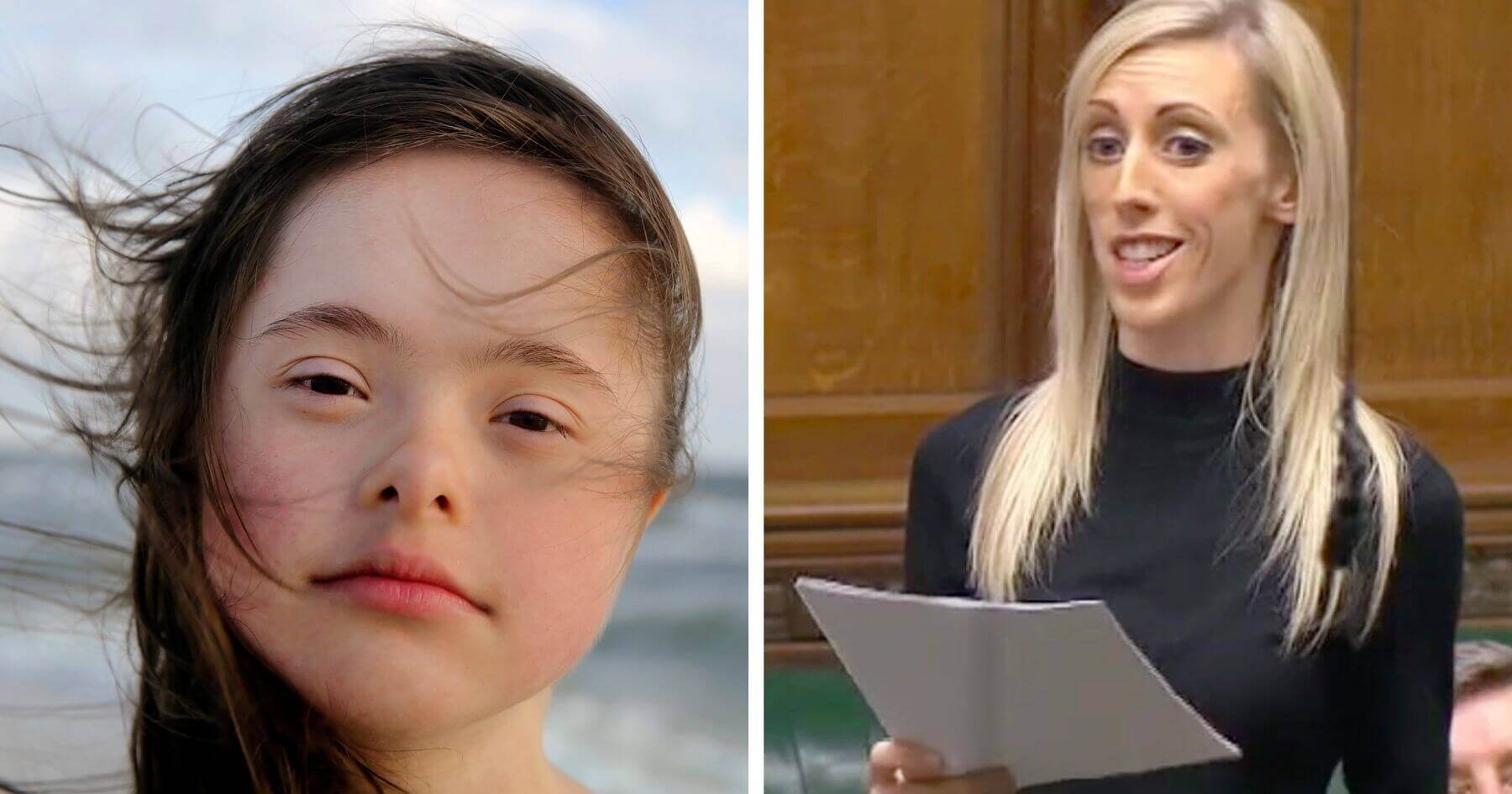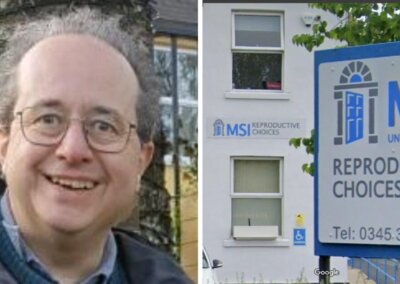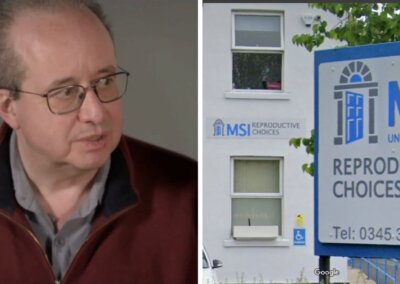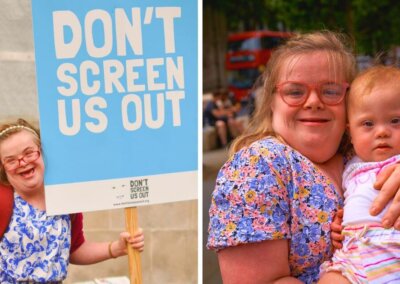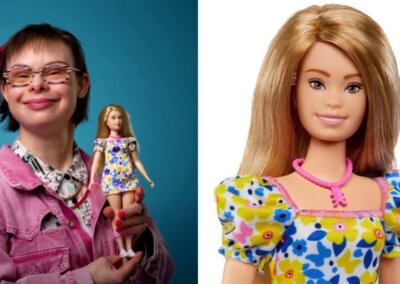DUP MP Carla Lockhart has highlighted the devastation experienced by women who are pressured to abort their babies during pregnancy, reporting that one woman has experienced post-traumatic stress disorder because of this ordeal.
On Monday 8th March in a Parliamentary debate on ‘Women’s Health Strategy’, Carla Lockhart, who was recently appointed Co-Chair of the All Party Parliamentary Pro-Life Group, used her time to draw attention to the discrimination and prejudice that many women (and their babies) experience when the unborn child is diagnosed with a disability.
Lockhart said: “I thank the Minister for outlining that women can discuss anything during this consultation. Can she therefore outline what efforts will be made to reach out and gather evidence from mums such as Rachel Mewes, who said on Twitter that she was pressured to consider having a late-term abortion at seven months pregnant, when she had previously stated repeatedly that she would never terminate for Down’s syndrome?”
She went on the describe the trauma that Mewes had experienced due to the pressure to have a late-term abortion, despite her being clear that she had no desire for an abortion.
PTSD because of pressure to abort her baby
“As a result, she now has post-traumatic stress disorder and has said that being forced to imagine someone killing her little girl Betsy nearly destroyed her”.
“Has the Minister considered the devastating impact that this kind of treatment is having on women’s health and wellbeing during pregnancy, and does she agree that disability discrimination in the womb should end?”
In response, the Minister for Patient Safety, Suicide Prevention and Mental Health, Nadine Dorries MP, said: “Abortion as such will not be part of the women’s health strategy, because it is being discussed under the sexual and reproductive strategy”.
She added: “However, the hon. Member is absolutely right; we will take evidence, we will look at that evidence and, if it comes in via the portal, we will pass it on to the sexual and reproductive strategy. However, there are no taboos and nothing that cannot be discussed. We want to hear about all women’s health issues, and I urge her to urge everybody she knows to click on the link and get involved”.
Pressured to abort
There is increasing anecdotal and institutional evidence of women being pressured to have abortions due to a fetal disability diagnosis.
Last year, we reported the stories of three women who were each put under pressure to have an abortion. One woman was offered 15 abortions, another was told how she made her sonographer “sick” because she refused amniocentesis which might cause a miscarriage, and a third had her midwife burst into tears. All this happened because these mothers had were expecting a baby with Down’s syndrome but they did not want an abortion.
Late last year, the Royal College of Obstetricians and Gynaecologists (RCOG), with the Royal College of Midwives and the Society and College of Radiographers, released guidelines that stress that the results of prenatal testing should be given and discussed in a “non-directive” manner. Whether a test indicates that a baby has Down’s syndrome or not, no parent should feel pressured into a decision about whether or not to have an abortion.
“These options should be provided in a non-directive manner and their choices should be accepted, noted and respected by the medical staff”.
The emphasis on a non-directive approach occurs within the context of some parents who decide they do not want an abortion “being asked repeatedly if they want further diagnostic tests or an abortion”.
“[These parents] report having their decisions challenged and being pressured into changing their minds”.
The guidelines go on to state: “This should not happen”.
“Parents should have the scope to change their minds, but not be pressured into doing so – their decisions should be accepted and respected at all times”.
Right To Life UK spokesperson, Catherine Robinson, said: “Sadly, the experience of Rachel Mewes reported by Carla Lockhart is more common than many of us think. In fact, being repeatedly offered an abortion if the baby is diagnosed with having Down’s syndrome or some other disability does not appear to be especially unusual”.
“The fact that the RCOG released guidelines urging doctors to be ‘non-directional’ and stating that women must not be pressured to abort is perhaps the strongest indication of the extent of what appears to be a widespread problem”.
“The general negative attitude towards people with Down’s syndrome can also be seen in the recent Do Not Resuscitate scandal, where, during the initial COVID lockdown last year, evidence of blanket ‘do not resuscitate’ orders were being applied to people with learning difficulties”.
“This is atrocious and tragic in equal measure, but it is also reflective of the general discrimination that people with disabilities experience in the womb and the pressure to abort that their parents experience”.


